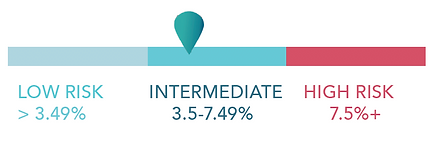top of page

A Simple Blood Test that Detects
THE LEADING CAUSE OF HEART ATTACKS:
Unstable Cardiac Lesion Rupture



Beyond Cholesterol Testing.
Beyond Plaque Testing.
The PULS (Protein Unstable Lesion Signature) Test measures the most clinically-significant protein biomarkers that measure the body's immune system response to arterial injury.
These injuries lead to the formation and progression of cardiac lesions which may become unstable and rupture, leading to cardiac event.
Finally, a blood test for the
leading cause of Heart Attacks.
Unstable Cardiac Lesion Rupture.
Your 5 Year Cardiac Risk Score
Your 5 Year Cardiac Profile of Unstable Cardiac Lesion Rupture will identify you as low, intermediate or high-risk compared to the expected score for your age and gender
The PULS Profile



Learn More from PULS Cardiac Test Providers
Dr. Rajput discusses the advantages of
PULS Cardiac Test

Find a PULS Test Provider Near You
bottom of page

















